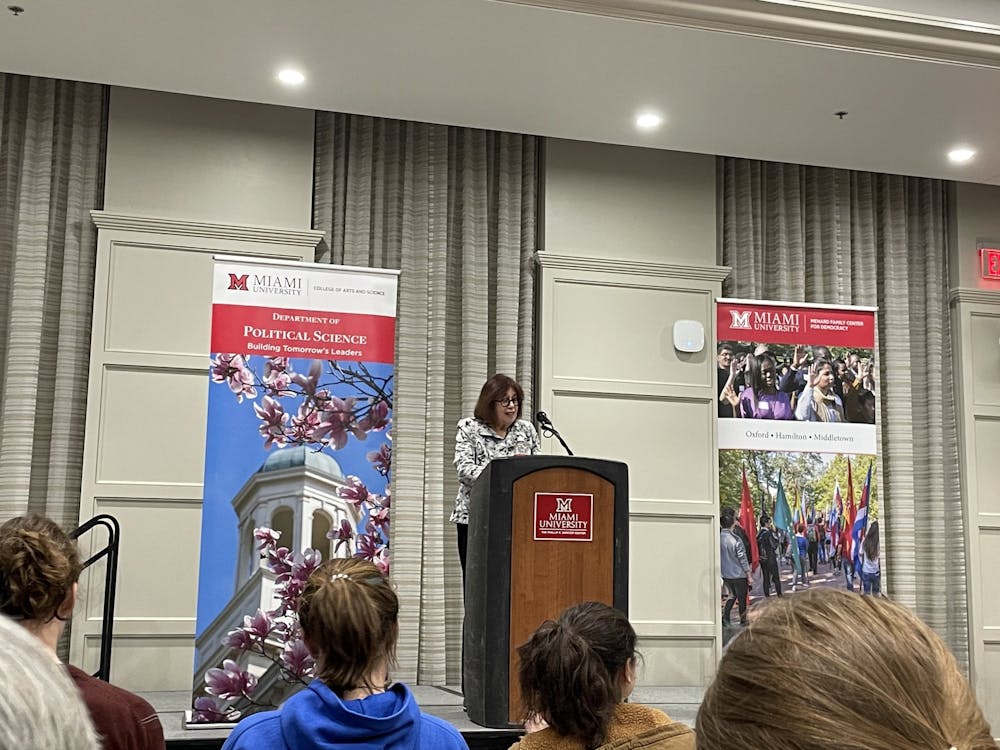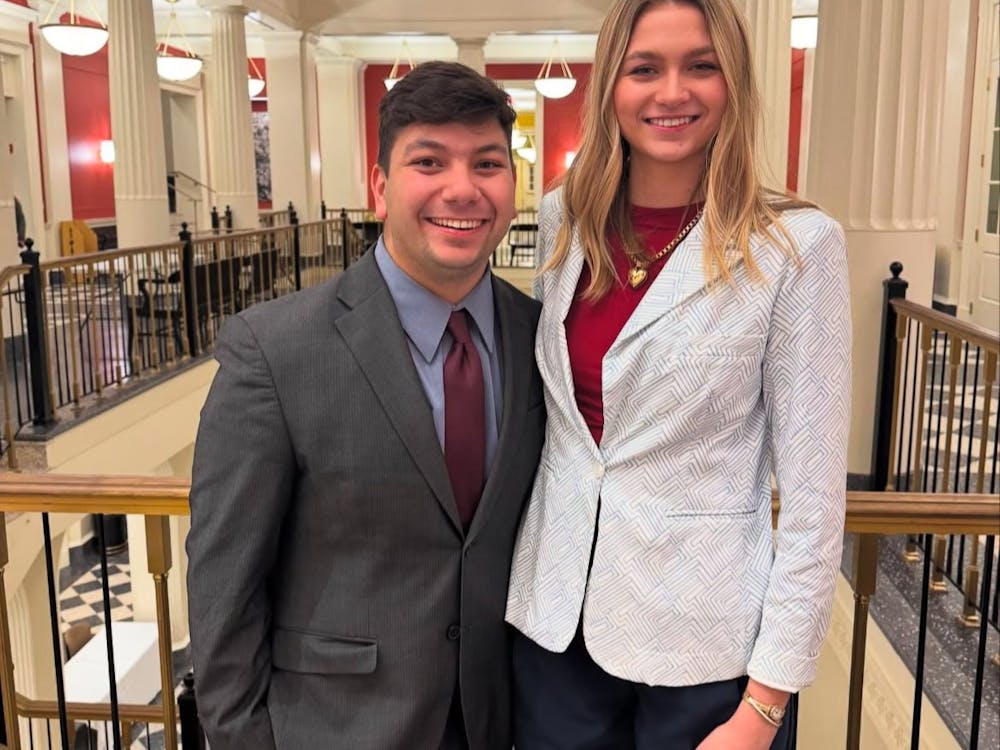Pulitzer Prize-winning journalist and Yale Law clinical lecturer Linda Greenhouse spoke at Miami University’s Oxford campus on March 2 to discuss her views on the Supreme Court and democracy. Greenhouse covered the Supreme Court for The New York Times from 1978 to 2008 and now writes guest opinion articles.
Greenhouse began her lecture, “Who Owns the Constitution?,” by talking about the recent case Dobbs v. Jackson Women’s Health Organization. In 1973, Roe v. Wade deemed that a woman’s ability to have an abortion was a constitutional right to privacy under the Due Process Clause of the Fourteenth Amendment. The Dobbs case overturned this precedent in a 6-3 decision.
“This is not a talk I would have given a year ago,” Greenhouse said. “[Dobbs is] a constitutional event that I think will mark this era in American history.”
Following the Dobbs decision, each state now has the right to curate their own abortion laws. This has allowed for bans on how far along in a pregnancy an abortion can be performed, and in some states, this also means limited exceptions for cases of rape or incest. The decision came one year before Roe’s 50-year mark and was leaked two months prior to its official release.
“That has already turned the United States into a country of what I call reproductive health refugees, fleeing their home states and wandering the landscape in search of a safe place not only to terminate a pregnancy, but to bring a wanted pregnancy to term,” Greenhouse said.
In the seven months since its release, many women have already had to cross state lines to receive abortions and pregnancy care because many doctors fear the legal consequences of abortion bans.
Greenhouse also discussed the changing legitimacy of the Supreme Court. She referenced a dissenter of Dobbs, Justice Elena Kagan.
“‘Judges create legitimacy problems for themselves … when they stray into places where it looks like they are an extension of the political process, when they’re imposing their own personal preferences,’” Greenhouse said, quoting Justice Kagan. “That’s pretty pointed for a Supreme Court justice to say.”
She also discussed Justice Samuel Alito’s opinion on Dobbs, which refers to abortion as a “profound moral issue.”
“That’s not a view from law,” Greenhouse said. “That’s a view from philosophy perhaps, or from a particular religious tradition. And it takes no account of other traditions that see profoundly moral reasons for terminating a pregnancy under a variety of circumstances.”
Greenhouse went on to discuss how the Supreme Court impacts our political landscape and how the ability to form its own docket affects legislation.
“[Docket creation] is one of the court’s greatest and least recognized powers, the power to shape the country’s legal and, often enough, its political agenda,” Greenhouse said. “There’s not a clean dividing line between law and politics.”
Enjoy what you're reading?
Signup for our newsletter
Following the Dobbs decision, Greenhouse said the widespread dissent of the public, which impacts the validity the Americans give to the Supreme Court. Greenhouse referenced the “positivity theory,” which has been developed by political scholars to determine how the Court remains legitimate.
“The basic idea is that people tend to accept Supreme Court decisions, even those with which they disagree,” Greenhouse said.
However, Greenhouse suggested that this theory is becoming obsolete, as more Americans begin to question Supreme Court decisions.
“This isn’t a matter of whether to fix the court,” Greenhouse said. “It’s a matter of questioning the validity of the enterprise of judicial review itself. After all, the Constitution says nothing about judicial review.”
Ending on an optimistic note, Greenhouse hinted at the future of the Supreme Court and the impact younger generations may have on it.
“This could be an exciting time in the life of the Supreme Court, new ways of thinking about new ideas on the table, a new generation willing to look hard at the institution,” Greenhouse said. “For the younger people in the audience, I just hope you stay with it because you are the salvation, ultimately, of how this is all going to play out.”
Peren Tiemann, a first-year public administration major, came to the lecture because they think these discussions are valuable for Miami to host.
“I think it’s really important for Miami to bring in perspectives who have been directly involved in these kinds of conservations, in this work and research for a long time because we’re not going to be able to have [a] hands-on perspective with something that’s happening in D.C. from Miami’s campus,” Tiemann said.
Katie Dunn, a first-year social work major, also attended to learn more about the Supreme Court from an expert source.
“We need more voters, we need more civic engagement, and we need more educated civic engagement,” Dunn said. “And that’s something that I think these lectures bring in. It really presents students with the facts and rounds out their perspectives to allow them to hopefully make some difference, whether that’s going into politics themselves, or just having an education.”
Greenhouse’s lecture was part of Miami’s O’Hara Lecture on Law and Politics, presented by the Department of Political Science and the Menard Family Center for Democracy.




